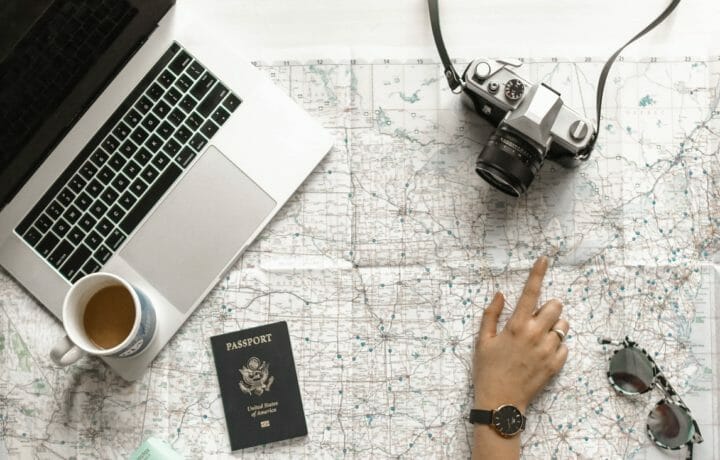“How do you even have a clearance?” has been asked of me probably a hundred times in my career when chatting with fellow intelligence professionals of all ilk. Wait, so you traveled to Bulgaria with a Middle Eastern woman and met a guy who claimed to work for foreign intelligence?” My answer is always “Report, Report, Report.“
I have spent nearly 15 years abroad in 70 countries. Only a handful of those were dictated by work as a U.S. Army Intelligence soldier or U.S. government contractor. Let’s say 65 of those countries were on my own volition as a tourist or student. However, most colleagues of mine have only traveled to work sites, transit points, and perhaps Canada and the Caribbean – maybe Europe. I opted to venture to additional less-touristy destinations.
Though most of my time living abroad – Iraq, Afghanistan, South Korea, Germany, Bosnia – were dictated by my career, I spent a considerable amount of time on my own accord living abroad. Absent hiding in a rental home or hotel room, you will inevitably make contact with countless foreign nationals – locals and third country nationals, expats and fellow travelers. Additionally, you will likely engage in platonic and romantic relationships on a long enough timeline.
Cleared Culture
While it is not prohibited to travel or live abroad, meet or befriend foreign nationals with a clearance, it is a reportable event. However, our cleared culture tends to conflate “Reportable Event” with “Reportable Offense.” Thus the vast majority of those I have met in my career maintain the belief that you cannot retain a clearance and travel or live abroad – and especially maintain foreign relations.
Because most things foreign related are reportable – bank accounts, close and continuing contacts, travel, cohabitation, business interests, etc. we tend to think it is prohibited. It is generally not. Though people may – and they will – look at you with a funny eye, if you have a solid Security Officer and conduct yourself accordingly, and report these events, you should fair just fine.
Accurate Reporting
Here’s a page from what I have done. I maintain a spreadsheet with all of my travels. This includes every border crossing with a country name, arrival, and departure dates. This document has a purpose aside from clearance reporting – for tax purposes (Foreign Income Tax Exception.) This lets me report how many days in a year I am out of the country. This also means it is critical to ensure the date is accurate – departed on the 15th from France but arrived to the USA on the 16th? Ensure that is documented.
Maintaining detailed records is vital for all reporting reasons. It also provides a great resource for random wonderings of “When was I in Kenya?” Just pop that bad boy open and boom. There it is. A caveat to add to this is that it is important to compare your entry/exit stamps to the data you have in case there is a discrepancy. Two reasons this may happen are 1) You landed before midnight but did not pass through immigration until after midnight. 2) The immigration officer’s stamp is wrong. In both cases it is incumbent upon you to annotate the discrepancy or correct it.
Foreign travel is probably the easiest of foreign relations to report. It is fairly straight forward usually. Foreign investments and accounts and business dealings is a whole other thing I tend to avoid, and I encourage you to discuss the nuances with your Security Officer. Foreign nationals on the other-hand is somewhere in between. If the interactions remain professional and temporary, it is generally acceptable to not report random daily encounters – the bartender, hotel clerk, etc.
This becomes a bit of a grey area when it comes to people you engage with more closely. This includes romantic, platonic, and professional contacts that you stay in contact with. My default response to anything that is “Close” “and” “Continuing” is to report it. Despite nearly a quarter of a century spanning 70+ countries and knowing countless foreigners, I maintained a clearance by vigorously reporting my relations and especially any incidents that I thought would be or could be viewed as, well, sketchy or notable.
Sojourn Secrets
Here is the secret: if you over-report, your Security Officer and Investigator may just think you are paranoid. And that’s not a terrible thing. I would rather all the people in my reporting channel think I am paranoid for reporting drunk foreigners claiming to be spies and exceptional airport security searches, then for these items to come up later and be something of an issue. At the very least, you are adding a data-point to the long catalogue of reports from locations for whomever may be monitoring trends at whatever foreign city you are referencing. You are thus only helping out the next person.
Make sure you document any questions rebuffed with dates – ideally via email to your security officer. This way, in case something ever comes up and anyone asks why it is not in your file, you can share the original email where you did disclose it but were told it is not reportable. Example: You ask your Security Officer if you should report “Co-Habitation” because you spent a month or two in an vacation rental with a foreign national partner, and they say it is not considered co-habitation.
Finally, no one is there to judge the morality of you being at a bar and meeting a random person. They are there to judge if you fail to report a reportable incident, or act in a way that could jeopardize operations – i.e. don’t leave your laptop open with your one night stand in Poland or brag about your clearance to new friend in Paraguay, etc. Be human, but be a professional – and when in doubt – report.




